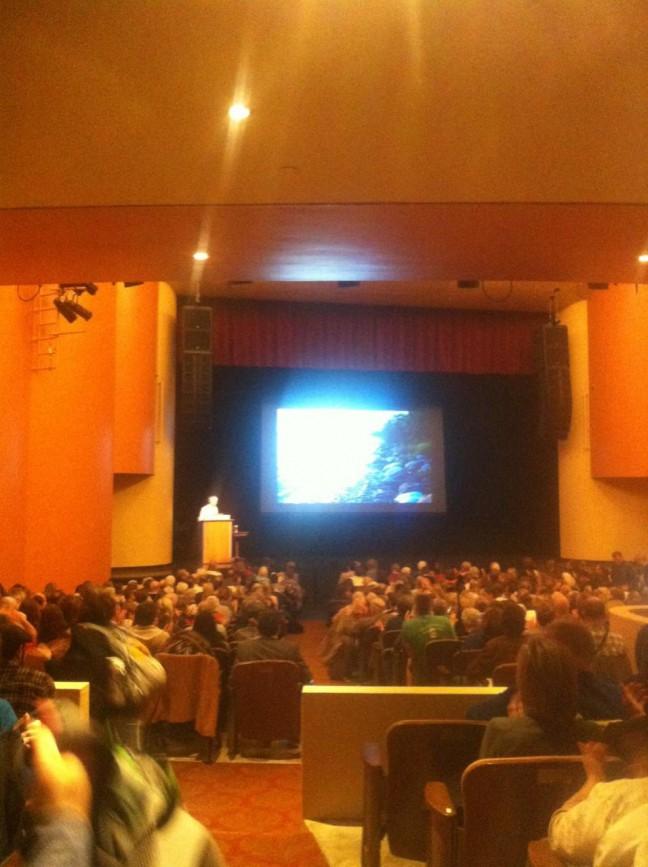On the 50th anniversary of the Wilderness Act of 1964, University of Wisconsin history professor William Cronon spoke on how history has impacted the perception of the wilderness.
In the Tuesday talk at the Memorial Union, Cronon addressed the concept of wilderness and said he sees a strong intersection between humans and nature.
“These lands are all about touching, knowing and loving the world we inhabit,” Cronon said.
He said children in today’s world are experiencing nature differently, either through screens or what he called the “virtual natural.”
“The idea of wilderness is a culture phenomenon,” Cronon said.
He said America’s history involves a land that was home to millions of native peoples. In the beginning, land was known as “the frontier,” but Cronon said it eventually transformed from wilderness into land.
Native people made treaties essentially signing over their property rights and eliminating native and human rights, he said.
He also said the French Revolution was an important part of land history, and people during that time shared the land in order to become a nation.
Ralph Waldo Emerson and Henry David Thoreau also had an impact on the perception of landscape, he said.
Cronon said Niagara Falls was a popular destination for mostly wealthy white males in its earlier days, especially considering their travels there for the purpose of pilgrimages.
He showed artwork that depicted couples and families taking pictures with the view of Niagara falls in the background.
He also discussed the “infamy” of Yellowstone National Park and how it was grounds for Americans to use nature for recreation.
He detailed how the Army was appointed as administration of the Yellowstone National Park and held the responsibility of protecting it.
Cronon also said railroads held the most centralized role within the history of the wilderness while the invention of the automobile held the most decentralizing role.
“Railroads helped take people to see natural wonders,” Cronon said.
However, he said the automobile did the opposite. He said highways made their way into the wilderness by connecting metropolitan areas to rural areas.















